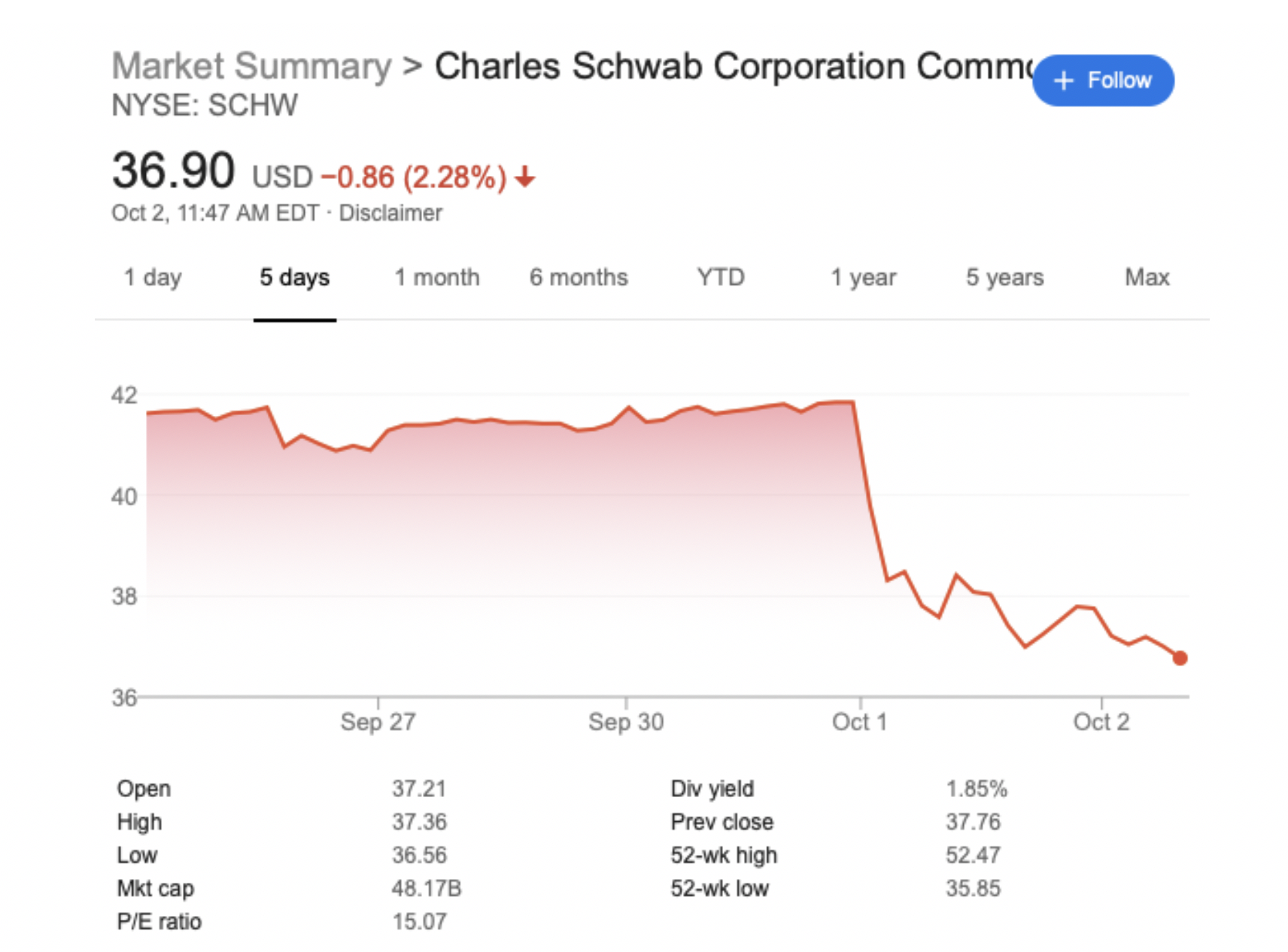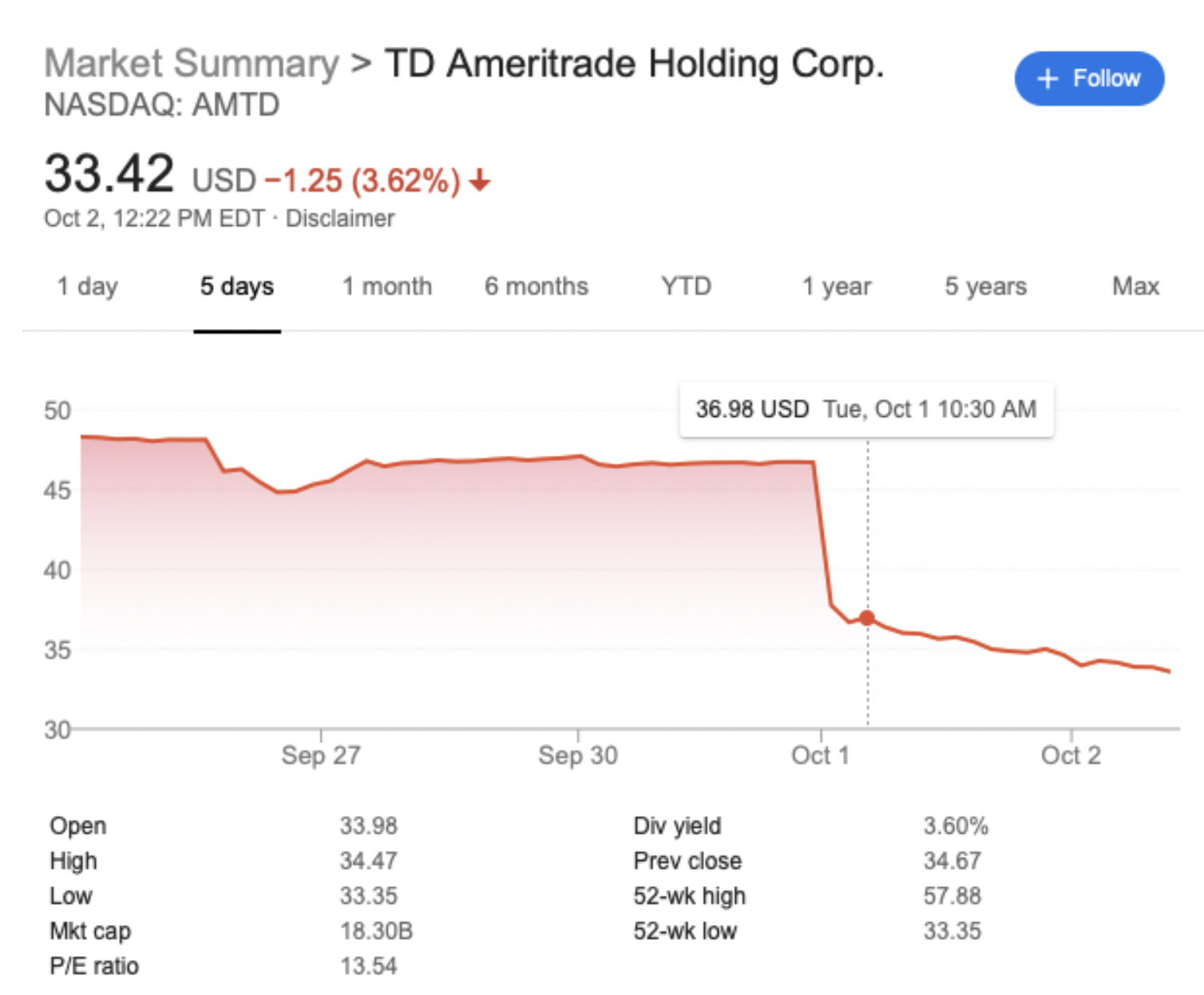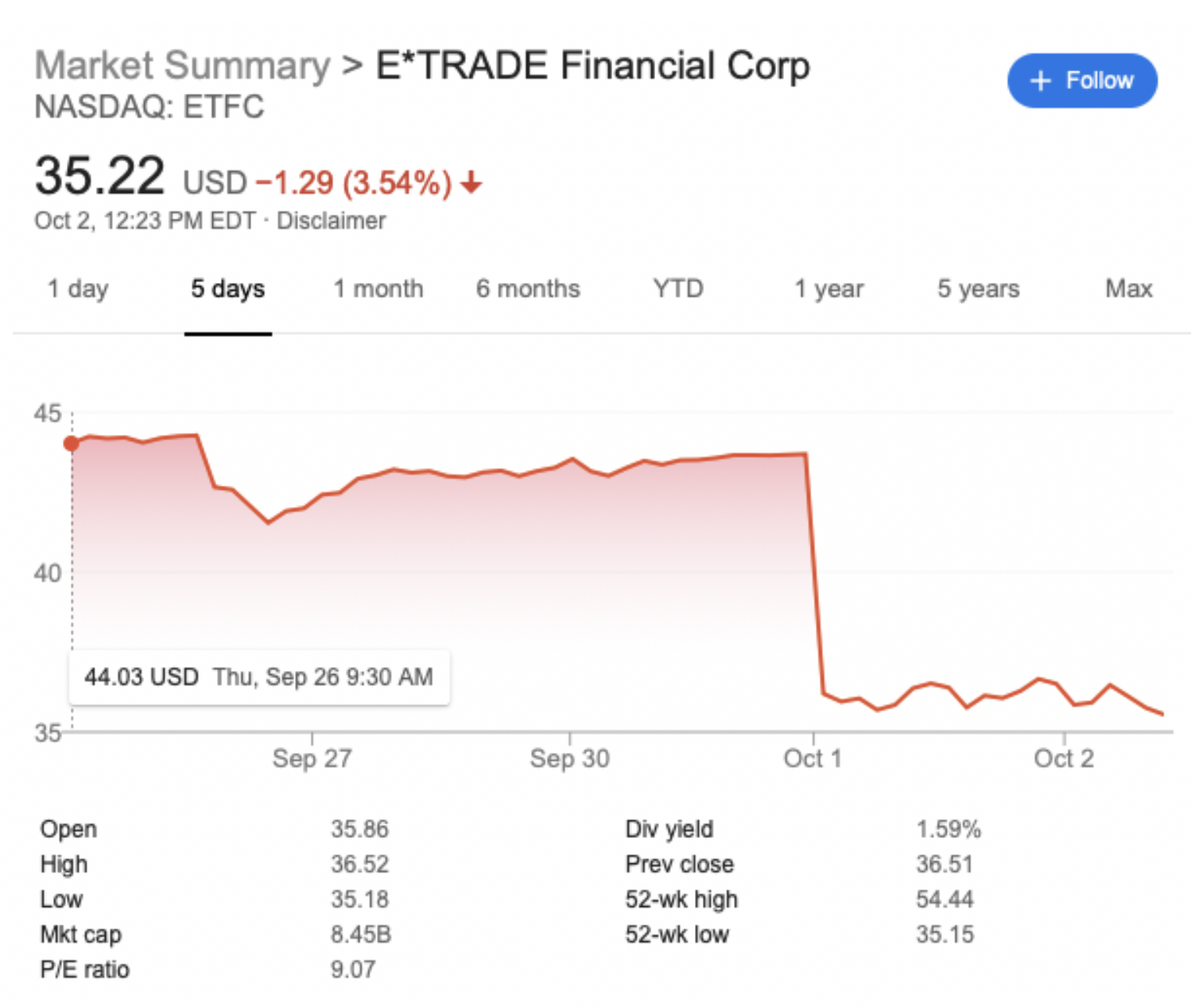When Robinhood first came out with its free stock-trading app, we didn’t really think it would take too long to put pressure on the market to fight back. After all, this wasn’t just a neat new app—this was a stock trading rebellion of unprecedented proportion.
And here we are: Giant Charles Schwab has now officially joined the zero-fee club.
As of next week, Schwab will be charging $0 in commission for trading in U.S. stocks, ETFs and options.
Shareholders aren’t exactly happy about it, though. The news shaved 9.7 percent off Schwab’s stock in what is shaping up to be its worst day in two decades. That’s because a healthy revenue stream off of $4.95 fees for a single trade are now gone.

(Click to enlarge)
But Schwab isn’t the only giant trading house Robinhood is taking down. It only took TD Ameritrade a couple of hours to follow Schwab’s move with its own—otherwise it would have been left behind in the tomb of fee-based trading, forever.
It’s been an expensive retreat for TDAmeritrade, whose shares lost over 25 percent when it hit the zero-fee trading button.

(Click to enlarge)
Also feeling the pain is E-Trade, not too long ago, the darling of this world. It’s shed 16 percent since Schwab and TDAmeritrade made their moves, and it hasn’t followed suit. That’s exactly why it’s stock is also crashing right now. Anyone still in this game based on significant revenues from commissions is going to be left out in the cold.

(Click to enlarge)
Robinhood has pulled the rug out from under trading commission revenues, but they should have seen it coming. Related: A Recession Would Devastate The U.S. Oil Industry
While Charles Schwab said in a statement that his move was based on the fact that “from day one, my passion has been to make investing easier and more affordable for everyone”, and zero-fee trading removes “the final pricing barrier to investing online”, the fact is, the stock is crashing because the trader banked on a lot of commission-based revenues.
More precisely, it will remove $90-$100 million in quarterly revenue from online trading commissions for Schwab. That represents 3-4 percent of the company’s revenue.
For TDAmeritrade, it means the loss of up to $240 million in quarterly revenues, or up to 16 percent—hence the even bigger crash for this trading giant.
So, now that Robinhood has truly succeeded in affecting a major trading coup, how it is doing?
Not bad. As it turns out, it’s worth $7.6 billion right now, following its most recent funding round valuation.
As far as high-growth startups go, it’s had some of the usual growing pains and fits and spurts, but it has launched the biggest rebellion in trading to date. That’s because it’s zero-fee trading has helped it attract massive numbers of users, which always translates into lots of capital, any way you look at it.
But it also raises another question: If there was one coup, can there be another?
What happens after Robinhood? Or, what could be better than free trading?
How about zero-fee trading that actually pays you to trade? That’s the goal of yet another startup, All of Us Financial, which is offering to do just that. The San Francisco-based startup is focusing on mass users. It’s even intentionally limiting its own revenue.
If it works, it could even pull the rug out from under Robinhood itself, but it would have to lure all those users away, and it hasn’t done that yet.
By Michael Kern for Safehaven.com
More Top Reads From Safehaven.com:
















